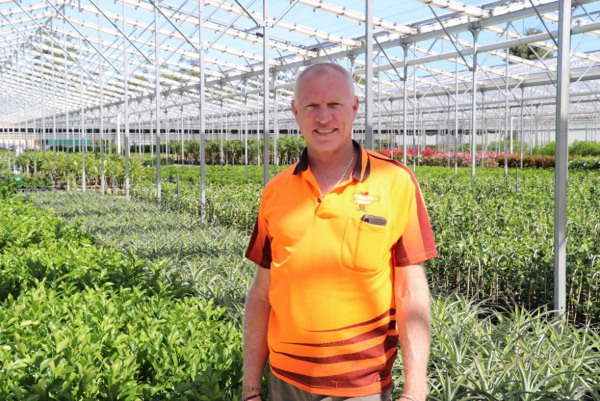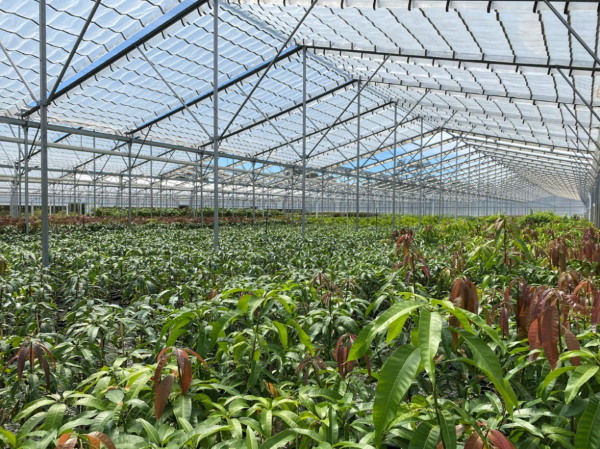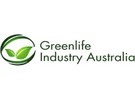Ben Archibald has been in the nursery industry since he was 16. Although both his business and the nursery industry look very different today compared to back then, there has been one constant throughout that time; a devotion to growing, maintaining and selling only the cleanest and healthiest plants.
Employing over 20 staff, Touchwood Nursery currently operates on a 15-acre property on the southern outskirts of Perth. It’s currently undergoing a period of growth which has led to the recent construction of a 16,000 square metre retractable roof production system.
The success of the business has been driven by an unrelenting dedication to preserving the quality of each plant at all points of the supply chain, from the purchase of stock and inputs, right through to delivery to customers, mostly big-box retailers.
“At Touchwood we have an unwavering focus on the quality of our plants. Of course, our plants need to be of a certain calibre to fulfil our contracts with the large retailers, but we aim much, much higher,” Ben said.

Ben Archibald, Owner, Touchwood Nursery
In 2015, Touchwood joined the Nursery Industry Accreditation Scheme Australia (NIASA). The program comprises a national set of ‘best management practice’ guidelines for production nurseries as well as growing media businesses and greenlife markets. The guidelines, which are available to all production nurseries, cover best management practice crop hygiene, crop management, site management and water management.
To gain and maintain formal NIASA accreditation, businesses must undergo an independent audit on an annual basis to ensure their business is operating under the national set of guidelines.
Importantly, the NIASA program underpins the Australian Plant Production Standard managed by Greenlife Industry Australia, which is a holistic system designed to ensure a sustainable future for the nursery industry. Critically, it’s driven by what the market expects of a quality product.
Whilst the elements included within the NIASA guidelines are rigorous, according to Ben, they should be looked at as a minimum standard rather than a maximum.
“Achieving NIASA accreditation should be achievable for any production nursery who cares about the quality of their product and the reputation of the industry,” Ben said.
Touchwood has had a long and fruitful relationship with the big-box retailers but in a competitive market like the nursery industry, a consistently strong and healthy plant is the difference between business failure or success.
Many factors can adversely affect plant quality, but pests and diseases are unquestionably one of the most important variables.
In order to keep its site safe from pests and diseases, the nursery has a ‘quarantine’ area, where incoming stock is held until it can be rigorously inspected for any signs of pests and disease. It’s a system that has worked wonders for the business, which continues to remain free from any major pest incursions.
“The less opportunities we create for pests and diseases to enter our site, the less likely it is that our quality could be compromised,” Ben said.
“It’s a passion point for us, but it also just makes obvious financial sense. Prevention is significantly cheaper than a cure when it comes to pests and diseases as well as weeds.

Touchwood Nursery, Western Australia
“Take spraying for example. By implementing strong processes to keep our sites safe from pests before they reach the gate, it means we need to spray less. Not only does this save us money on input costs, but we are contributing less chemicals to the environment."
But perhaps the most important of Touchwood’s plant protection processes starts well before incoming stock is even on its way to the nursery site.
Touchwood’s exceptionally high standards for plant quality extends beyond the nursery’s own operations. It’s also a philosophy applied to its suppliers.
“We only purchase from a small, trusted group of suppliers. We will only purchase off other NIASA certified nurseries, or if a nursery is not formally accredited we will not accept any stock unless our staff have personally attended their site and ensured that their plant protection practices are at least at a NIASA level, if not more.”
According to John McDonald, National Biosecurity Manager, Greenlife Industry Australia, businesses like Touchwood, which operate under the NIASA guidelines don’t just grow healthier plants but create real tangible business benefits.
“NIASA certified businesses are typically more productive and more profitable.
“The program is science driven. This means that businesses that put a structured, disciplined program in place are subscribing to decades of proven scientific research on how to grow the best plants and run a profitable nursery production business.
“Anecdotally we are hearing that once businesses are operating to NIASA accreditation and BioSecure HACCP certification levels, there is anything from a 3- 5% initial productivity gain derived from numerous ways including reduced pesticide use, reduce labour and improved wastage levels.
“When you consider the additional variables which are more intangible, such as reduced administration, repeat custom through high quality stock, and more stock availability at critical times, we believe NIASA certification can improve productivity by up to 10% to 20% for an average production nursery,” said Mr McDonald.
Ben Archibald is imploring other nurseries to join the program, not only for the sake of their own profitability, but to provide greater value for the accreditation itself. “I believe that all production nurseries should be NIASA certified,” Ben said.
“By putting an emphasis on NIASA, we can bolster the strength of the certification and help both ourselves and our customers differentiate between production nurseries that might be putting less emphasis on plant protection and hygiene from those, like ourselves, that are devoted to ensuring a healthy, pest and disease free product.”
Any business that is looking to explore NIASA certification is encouraged to visit nurseryproductionfms.com.au to find out more about the program as well as the other nursery certification programs such as EcoHort and BioSecure HACCP.
For more information: Greenlife Industry Australia
Greenlife Industry Australia
T: (02) 8861 5100
info@greenlifeindustry.com.au
www.greenlifeindustry.com.au
